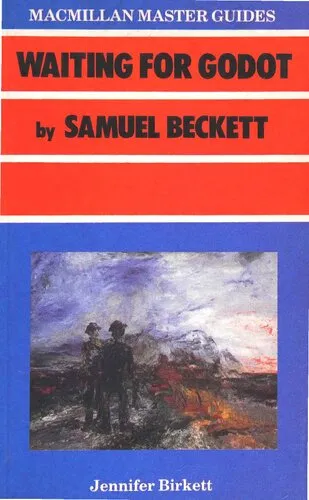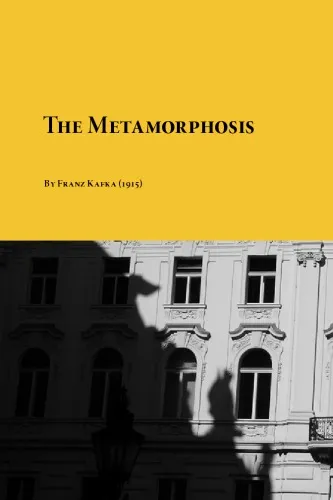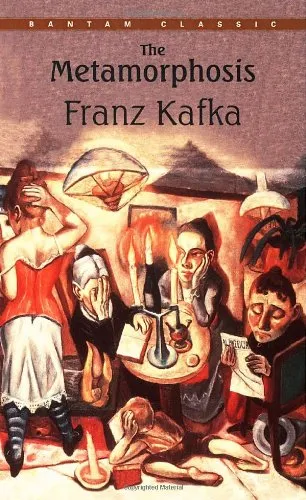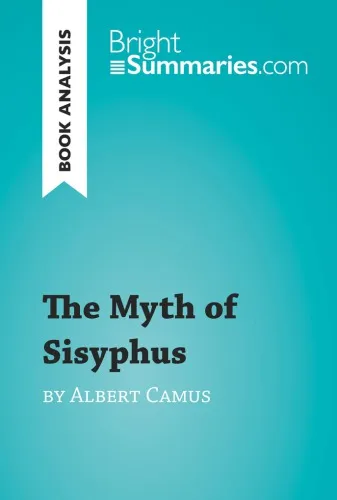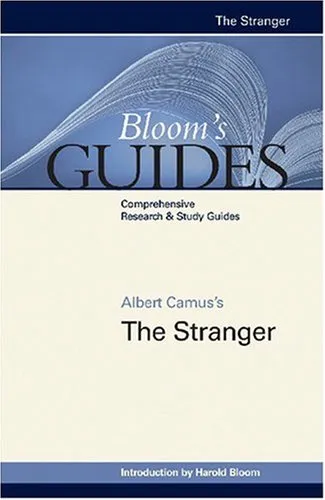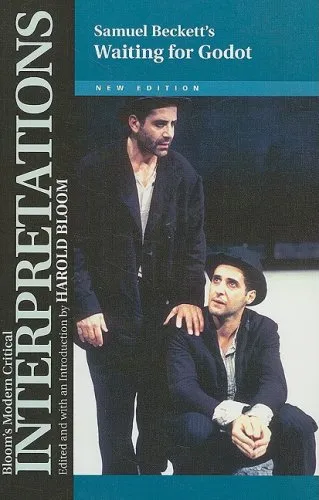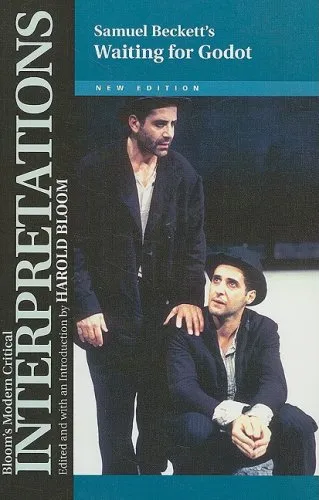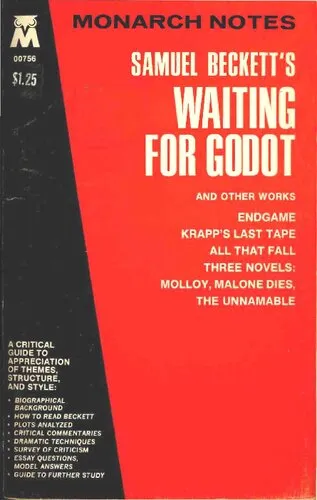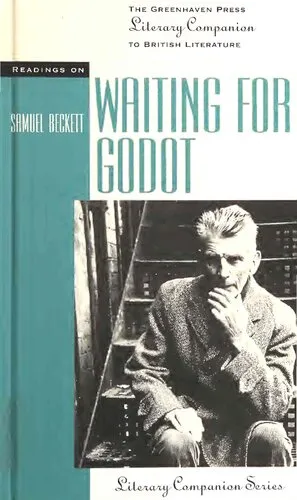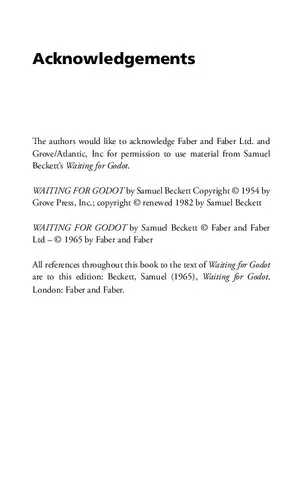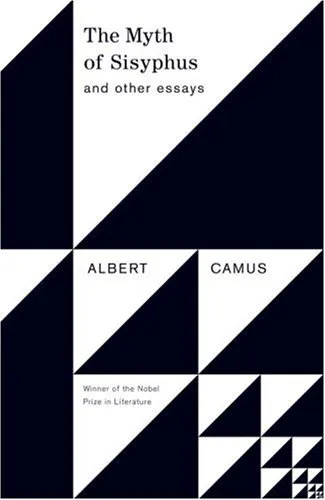Waiting for Godot by Samuel Beckett
4.5
بر اساس نظر کاربران

شما میتونید سوالاتتون در باره کتاب رو از هوش مصنوعیش بعد از ورود بپرسید
هر دانلود یا پرسش از هوش مصنوعی 2 امتیاز لازم دارد، برای بدست آوردن امتیاز رایگان، به صفحه ی راهنمای امتیازات سر بزنید و یک سری کار ارزشمند انجام بدینکتاب های مرتبط:
مقدمهای بر کتاب 'در انتظار گودو' اثر ساموئل بکت
کتاب 'در انتظار گودو' (Waiting for Godot) یکی از برجستهترین و تاثیرگذارترین آثار ساموئل بکت است که در سال ۱۹۵۳ به زبان فرانسوی منتشر شد. این نمایشنامه در قالب تئاتر ابزورد نوشته شده و به مضامین فلسفی عمیقی چون پوچی زندگی و معنای وجود پرداخته است. در ادامه، به بررسی دقیقتری از بخشهای مختلف این اثر جاودانه میپردازیم.
خلاصه مفصل از کتاب
'در انتظار گودو' یک نمایشنامه دو پردهای است که داستان آن در مورد دو شخصیت اصلی، ولادیمیر و استراگون، میباشد. این دو مرد در یک مکان نامعلوم و زمان نامشخص در انتظار فردی بهنام گودو هستند. با وجود آن که هیچگاه مشخص نمیشود گودو کیست یا چرا آنان منتظر او هستند، این انتظار نمادین با گفتگوهای بینتیجه و لحظات پوچ آنها ادامه مییابد. در طول داستان، شخصیتهای دیگر نیز به صحنه وارد میشوند، مانند پوتزو و لوکی، که به نوعی زندگی بیمعنا و جریان زمان را به چالش میکشند.
ساختار تکراری و عدم پیشرفت زمانی ملموس، احساس انتظار و بیمعنایی را در داستان به حداکثر میرساند. ولادیمیر و استراگون با اعمال بیهوده و تکرار نشانههایی از تلاش انسان برای یافتن معنا در جهانی بیسروسامان و نابسامان هستند.
نکات کلیدی از کتاب
- تئاتر ابزورد و تعاریف آن در بستر فلسفی و هنری.
- نقش زمان و انتظار بهعنوان محورهای اساسی در زندگی انسان.
- کاوش در مفاهیمی چون پوچی و وجود گرایی.
- مطالعه ناتوانی در برقراری ارتباط و عدم قطعیت زیستی.
نقلقولهای مشهور از کتاب
"چیزی برای انجام دادن نیست." (Nothing to be done.)
"ما خوشحالیم... بیهیچ دلیلی." (We are happy... without a reason.)
"ما میخواهیم بمانیم چون از ترک کردن میترسیم." (We want to stay because we are afraid of leaving.)
چرا این کتاب اهمیت دارد؟
'در انتظار گودو' به عنوان یکی از مهمترین آثار دوران پس از جنگ جهانی دوم، سوالاتی را در مورد ماهیت وجود و معنا مطرح میکند که همچنان در دوران معاصر مطرح هستند. این کتاب به روشنی بحران معنایی و پوچی زندگی مدرن را بررسی میکند و تماشاگر را به تفکر عمیقتر درباره نقش و معنای زندگی تشویق میکند. همچنین، این اثر با سبک منحصر به فرد خود در تئاتر ابزورد، تأثیر گستردهای در دنیای ادبیات و هنر به جا گذاشته است.
با دلایلی که ذکر شد، 'در انتظار گودو' میتواند همچنان به عنوان یک اثر ادبی مهم و تفکر برانگیز مورد مطالعه و تحلیل قرار گیرد و نسلهای مختلفی از خوانندگان و تماشاگران را به چالش فکری و احساسی بکشاند.
Introduction to "Waiting for Godot" by Samuel Beckett
"Waiting for Godot," a play by Samuel Beckett, stands as one of the most iconic pieces of literature in the 20th-century theatre. This work, which Beckett originally penned in French and later translated into English, embodies the essence of existentialism and explores the human condition, eschewing conventional plot structures to focus instead on themes of absurdity, waiting, and the passage of time.
Detailed Summary of the Book
The narrative of "Waiting for Godot" unfolds through the experiences of two main characters, Vladimir and Estragon. These two vagabonds, situated in a stark, nondescript landscape, spend their time waiting for an enigmatic figure named Godot, who never arrives. Despite the simplicity of the setting, the dialogue between Vladimir and Estragon is rich with philosophical depth and humor, reflecting on life's uncertainties and fleeting nature.
The play is punctuated by the appearance of two other characters, Pozzo and Lucky. Pozzo is a bombastic landowner, and Lucky is his subservient companion, whose degradation underscores themes of power and control. Their interactions with Vladimir and Estragon further amplify the play's existential overtones, serving as a contrast to the protagonists' passive waiting.
Amidst the repetitive action and dialogue, the audience is drawn into a contemplation of purpose, meaning, and the nature of existence. "Waiting for Godot," through its cyclical structure and open-ended scenarios, becomes a mirror reflecting the absurdity and perseverance inherent in human life.
Key Takeaways
- The Absurdity of Life: Beckett delves into existential philosophy, illustrating life's inherent chaos and lack of innate meaning.
- The Nature of Waiting: The central act of waiting becomes a metaphor for human existence, questioning the act of anticipation and the passage of time.
- Interpersonal Dynamics: Through its characters, the play examines themes of companionship, dependency, and the human need for connection.
- Existential Reflection: The repetitive nature of the play encourages viewers and readers to reflect on their own lives and the cyclical patterns within them.
Famous Quotes from the Book
"Waiting for Godot" is rich with poignant and thought-provoking dialogue. Some of its most memorable lines include:
"Nothing to be done."
"They give birth astride of a grave, the light gleams an instant, then it's night once more."
"Let's go." "We can't." "Why not?" "We're waiting for Godot."
Why This Book Matters
"Waiting for Godot" holds a significant place in the canon of modern literature and drama, primarily due to its groundbreaking structure and thematic explorations. Beckett's work challenges audiences to relinquish traditional narratives, opting instead for thought-provoking abstractions that prompt an introspective examination of life's fundamental questions. This play laid the foundation for the Theatre of the Absurd, influencing countless playwrights and creators who followed.
Its relevance endures as it continues to resonate with audiences and readers across generations, offering a stark yet oddly comforting reflection of the human experience. As a result, "Waiting for Godot" remains a crucial text for those exploring existential themes in literature, theatre, and philosophy.
دانلود رایگان مستقیم
شما میتونید سوالاتتون در باره کتاب رو از هوش مصنوعیش بعد از ورود بپرسید
دسترسی به کتابها از طریق پلتفرمهای قانونی و کتابخانههای عمومی نه تنها از حقوق نویسندگان و ناشران حمایت میکند، بلکه به پایداری فرهنگ کتابخوانی نیز کمک میرساند. پیش از دانلود، لحظهای به بررسی این گزینهها فکر کنید.
این کتاب رو در پلتفرم های دیگه ببینید
WorldCat به شما کمک میکنه تا کتاب ها رو در کتابخانه های سراسر دنیا پیدا کنید
امتیازها، نظرات تخصصی و صحبت ها درباره کتاب را در Goodreads ببینید
کتابهای کمیاب یا دست دوم را در AbeBooks پیدا کنید و بخرید
1497
بازدید4.5
امتیاز0
نظر98%
رضایتنظرات:
4.5
بر اساس 0 نظر کاربران
Questions & Answers
Ask questions about this book or help others by answering
No questions yet. Be the first to ask!
